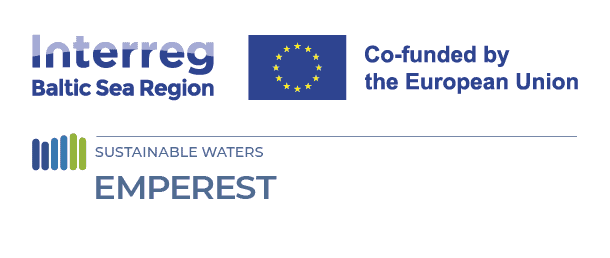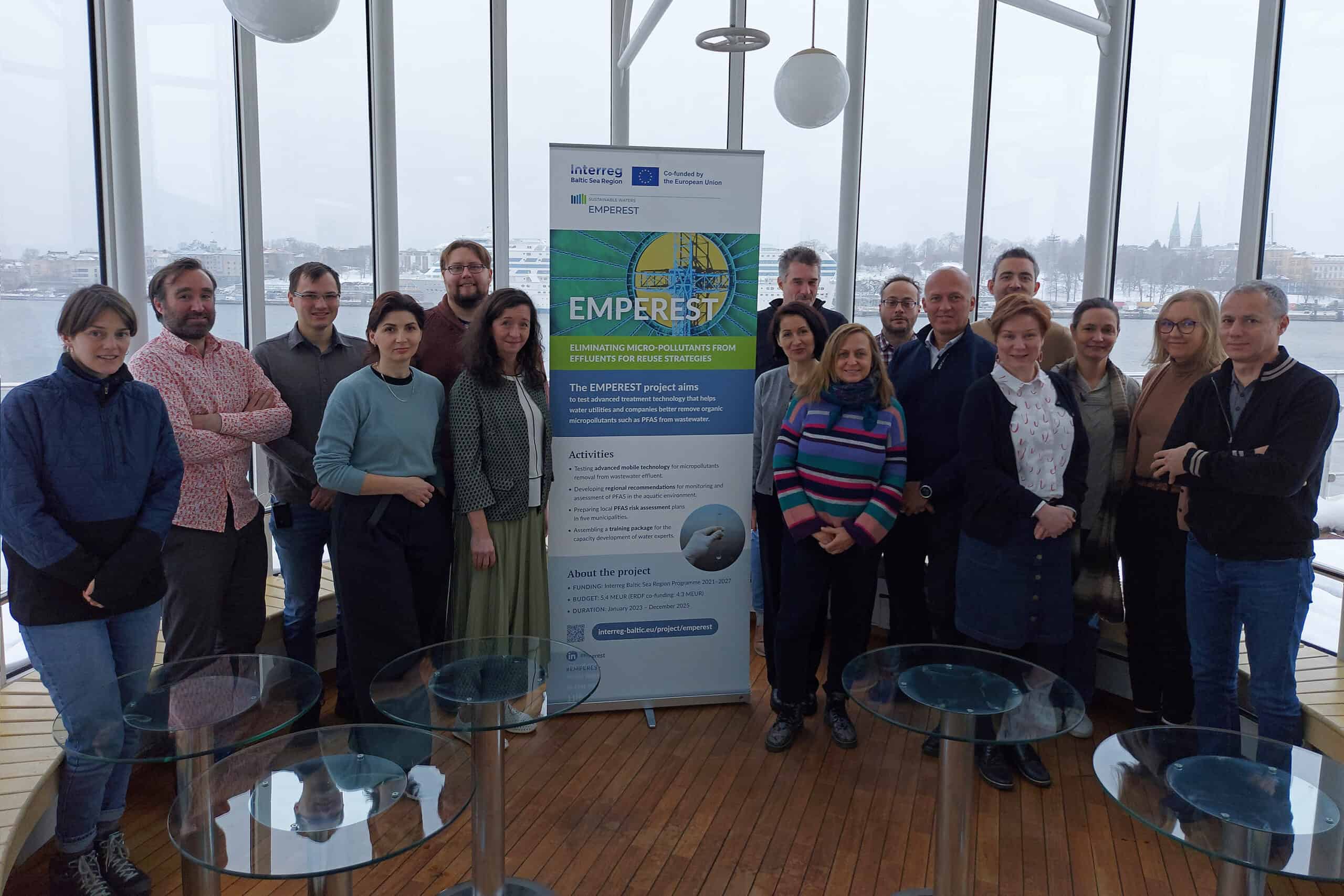
International experts meet to plan the monitoring of PFAS
08 December 2023
Though the EMPEREST project’s focus on removing organic micropollutants from wastewater effluents might be the more visible part of the project’s activities; a significant part of the project work is also concentrated on drafting methodological recommendations to monitor the PFAS group of substances in the aquatic environment. There is still a knowledge gap today when it comes to the monitoring of these micropollutants, as there are many different substances, matrices, and largely varied assessment parameters to consider. However, the time is just right to work on PFAS now, as not only have these substances been identified as one of the most pressing challenges globally, but the latest holistic assessment of the Baltic Sea (HOLAS 3) has identified hazardous substances to now be the main driver of Baltic Sea’s poor environmental status.
The revision process of the Urban Wastewater Directive is also taking place at this exact moment, and among other changes is preparing more stringent micropollutant removal rates from wastewater – up to 80% in relation to the load of the influent. And, while some micropollutants can be removed through secondary and tertiary treatment, a fourth treatment stage – quaternary treatment – is introduced in the revision of the Directive to tackle micropollutants more efficiently. (» Find out more in the interview with MEP Nils Torvalds)
“In EMPEREST, we hope that our wastewater treatment plants will become the frontrunners when it comes to the implementation of the revised Directive,” stated during the expert meeting Markus Raudkivi, project coordinator at HELCOM.
What should the monitoring look like in the future?
Earlier this year, an extensive PFAS monitoring data call was sent to the contracting parties of HELCOM to explore the current monitoring systems, national studies, analytical capabilities of laboratories. The workshop this November, hosting over 40 international experts in a hybrid format, became a natural continuation of the work, as the first round of the data call results are being finalised. The programme included presentations from HELCOM experts Markus Raudkivi and Owen Rowe, explaining the goals of the EMPEREST project, preliminary results of the PFAS data call as well as the present work of HELCOM on the topic of indicators.
The groupwork part of the workshop focused on four large topics: the target substances to monitor in different matrices; the most feasible sampling and analysis methods for PFAS; the spatial and temporal coverage of the monitoring systems; and possibilities for assessment and evaluation of the monitoring results. Using the preliminary data of the data call, the expert discussions covered a lot of ground on the aforementioned topics. A lot of emphasis was put on the monitoring in biota, which in this case mostly means analysing perch and herring samples from the Baltic Sea – showing the accumulation of different PFAS in the environment. Combined with monitoring from water and sediment, the differences between the data could help us make more informed decisions about the trends of PFAS pollution and potentially even highlight the sources of the pollution.
All-in-all, the workshop with international experts provided valuable information and insights related to national monitoring, which enables further work on preparing the harmonised monitoring guidelines, one of the main outputs of the EMPEREST project. The draft for the methodological recommendations is scheduled for spring 2024, which after being piloted and validated during the summer, will be published as the project output by start of 2025.
Project Steering Group meeting
The expert workshop in Helsinki was also a good chance for the EMPEREST PSG to meet and plan the next steps in the project, including the dates and themes of the project’s four big external events, starting from early 2024! The PSG meetings took place on the 29th of November and the 1st of December, fitted around the monitoring workshop for international experts. A lot of work was done by the group in Helsinki – the next time the PSG meets in person will be at the EMPEREST project 1st workshop in Tartu, marking the launch of our four large external events planned to bring the knowledge and experiences to the local and regional stakeholders! The workshop will take place on 12-14 February 2024 (external programme on the 13th of February 2024), and we hope to meet you all there!
Written by: Markus Raudkivi, HELCOM, and Mariia Andreeva, UBC Sustainable Cities Commission






